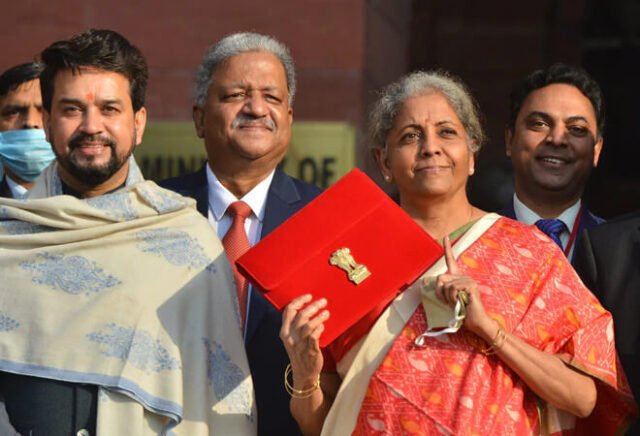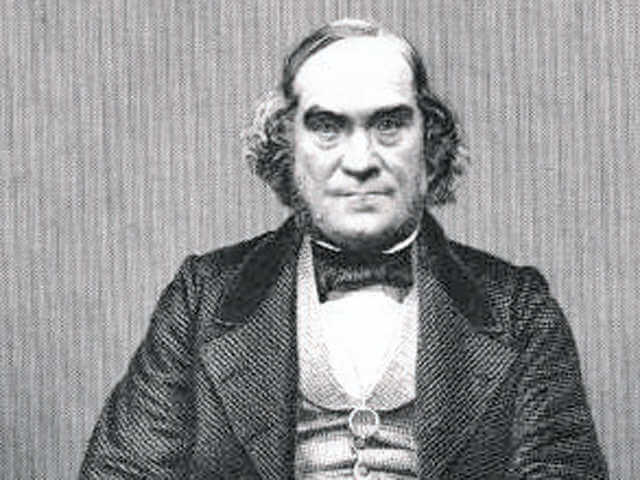Now that all our eyes are set on that brand-new ‘Made in India’ red tablet and the woman in the red saree, trying to create a new tradition— did you ever wonder when and how it all started?

The Question Of Tradition
Our present government has started bringing a Swadeshi bahi khata to the Parliament since the Union Budget of 2019. Instead of carrying all the documents in a leather suitcase, their message was clear and loud: the Modi administration was not a “suitcase carrying government”.
But as much as they would like us to believe that the history of budgetary planning can be located in the ancient times, the golden period of India, we all know that is not entirely true. The legacy of the current economic planning and budgetary session has its roots back in the colonial period.
Who Started It And When?
The institution behind this economic subjugation in terms of regular financial planning and its implementation was the British colonial government. India’s first Budget was created by James Wilson in 1860.
Before we delve into the story, you might be interested to know the credentials of the man who gave us our economic legacy. Described by Karl Marx as an “economical mandarin of high standing”, his fame knew no bounds.
He was the founder of The Economist. He was also behind the setting up of the Chartered Bank of India, China, and Australia which finally merged into Standard Chartered in 1969, and therefore appropriately appointed as the Finance Member of the Indian Council. But he was not one of those with old money.
Also Read: India’s Fiscal Deficit Goes Beyond 135% Of Target Budget; What Does It Mean?
A self-taught man, his relatives were into making and selling hats. But it was his hard work, brilliance, and deep knowledge of economics and commerce that he became a successful economist and businessman.
The Initial Milestone
As Indian Chancellor of the Exchequer – a post he held for only nine months, he made India ready for a big jump. He took a leap of faith and introduced systematic financial planning and a framework for its execution.

Although inspired by the English Model, the first financial budget did instill some confidence in the Indian public. Despite his Englishness, his mind was that of an economist.
As a result, his first endeavor was to bring together scattered fragments of documented and undocumented finances emanating from England’s own military and political pursuits.
He also tried to improve the functioning of the Military Finance Commission. He attempted to curtail the extravagant nature of civil expenditure.
Wilson did not even flinch from reviving the auditing and accounting system besides his other responsibilities as the Finance Minister and advisor to the Indian Viceroy.
His honest opinion on the misgivings about the economic standing of the-then Indian government and his Income Tax Act was also incremental for stirring the nationalist movement by giving away Britain’s economic exploitation of India.
But we have come a long way since then, for sure. On one hand, we still do share some commonalities with the Brits. But on the other, we have tried to make it as Indianized as possible since the Union Budgets by Finance minister RK Shanmukham Chetty and then John Mathai.
Image Credits: Google Images
Sources: The Economic Times, India Infoline, The Quint
Find The Blogger: @soumyaseema
The post is tagged under: union budget, FY21, Nirmala Sitharaman, James Wilson, India’s first budget, interim budget, RK Shanmukham Chetty, John Mathai, Viceroy, Finance Minister, Red tablet, Indianized as possible, commonalities with the Brits, nationalist movement, Income Tax Act, extravagant nature of civil expenditure, Military Finance Commission, Made in India, Swadeshi bahi khata, suitcase carrying government, legacy of the current economic planning and budgetary session, economic subjugation in terms of regular financial planning and its implementation, Karl Marx, economical mandarin of high standing, The Economist, Chartered Bank of India, China, and Australia, Standard Chartered, Finance Member of the Indian Council, deep knowledge of economics and commerce, Indian Chancellor of the Exchequer




































